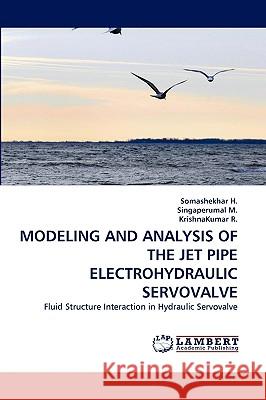Modeling and Analysis of the Jet Pipe Electrohydraulic Servovalve » książka
Modeling and Analysis of the Jet Pipe Electrohydraulic Servovalve
ISBN-13: 9783838354422 / Angielski / Miękka / 2010 / 156 str.
The growth of fluid power has accelerated with desire to control ever-increasing quantities of power and mass with higher speeds and greater precision. More specifically, where precise motion control is desired and space and weight are limited, the convenience of a high power-to-weight ratio makes hydraulic servomechanisms ideal control elements. The objective of the monograph is to develop a design methodology to study the dynamics of the Fluid Structure Interaction (FSI) of jet pipe Electrohydraulic Servovalve with built-in mechanical feedback using Finite Element Method. The FSI is established by modeling the mechanical parts, fluid filled cavities and the interaction between the two domains. Also the complete mathematical approach for performance prediction of the valve is detailed in the monograph. Selected experimentation was carried out on delicate and critical components of the valve for validation of simulation results.
The growth of fluid power has accelerated with desire to control ever-increasing quantities of power and mass with higher speeds and greater precision. More specifically, where precise motion control is desired and space and weight are limited, the convenience of a high power-to-weight ratio makes hydraulic servomechanisms ideal control elements. The objective of the monograph is to develop a design methodology to study the dynamics of the Fluid Structure Interaction (FSI) of jet pipe Electrohydraulic Servovalve with built-in mechanical feedback using Finite Element Method. The FSI is established by modeling the mechanical parts, fluid filled cavities and the interaction between the two domains. Also the complete mathematical approach for performance prediction of the valve is detailed in the monograph. Selected experimentation was carried out on delicate and critical components of the valve for validation of simulation results.











